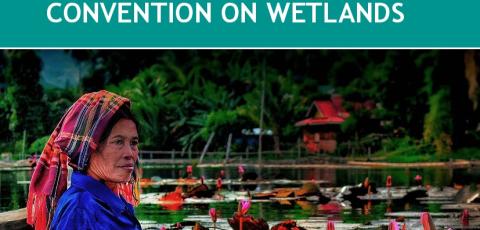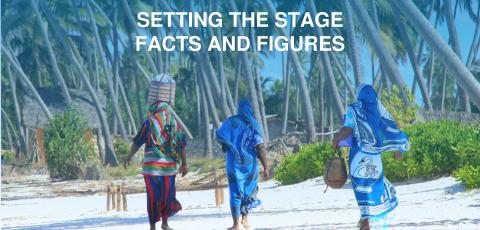Training Webinar: Mainstreaming Gender under the Convention on Wetlands
The participation and knowledge of women in water and land resource management has historically been unseen and under-documented. However, in recent decades, gender-responsive analyses and assessments have been prioritized, with key institutions, policy agendas and global targets holding the world to account to recognize, highlight and promote women and their role in the management of natural resources. More specifically, there is a growing body of literature on gender-related aspects of water management, covering issues such as climate change adaptation, land management and agricultural practices, highlighting the knowledge and agency of women as leaders and change-makers instead of presenting them as a marginalized group.
Contracting Parties to the Convention on Wetlands consider gender-related aspects of wetland management and wise use a priority. Resolution XIII.18 on Gender and wetlands highlights that other Conventions, including the Convention on Biological Diversity (CBD), the United Nations Framework Convention on Climate Change (UNFCCC) and the United Nations Convention to Combat Desertification (UNCCD) have recognized the importance of addressing gender equality and women’s empowerment in their implementation.
Furthermore, the Resolution encourages Contracting Parties to be gender-responsive in the implementation of the Convention, recognizing the role of women, including indigenous and local women, in the provision, management and safeguarding of wetlands.
The Secretariat of the Convention provides you a webinar aiming to enhance the understanding of gender mainstreaming. It considers how to integrate gender issues in the implementation of the Convention, highlights the benefits of gender equality, and identifies the risks of gender inequality.
Recording of the webinar:

